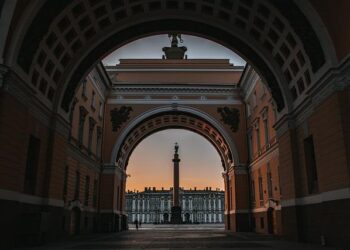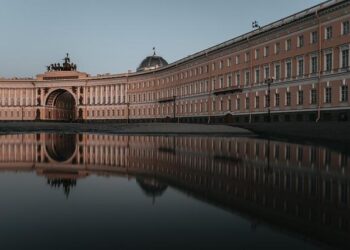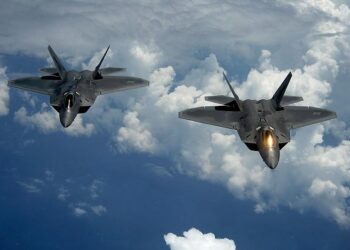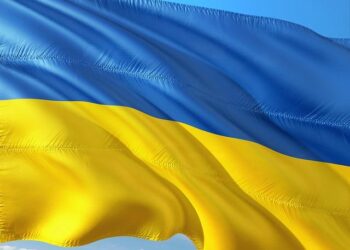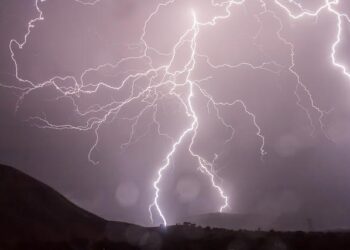In the intricate web of power and influence that shapes modern Russia, the role of oligarchs extends far beyond mere wealth accumulation.While President Vladimir Putin has long been viewed as the face of Russian authority, a closer examination reveals that a different force may be shaping his policies, especially regarding the ongoing conflict in Ukraine. This article delves into the life and influence of one oligarch in particular, whose strategic maneuvering and fervent nationalism are pushing the Kremlin towards a more aggressive stance. As the war in Ukraine enters a critical phase, understanding the motivations and actions of this key player becomes essential to grasping the dynamics steering Russia’s geopolitical ambitions. Join us as we explore the intersection of personal ambition and statecraft, uncovering the true power players behind Russia’s tumultuous trajectory.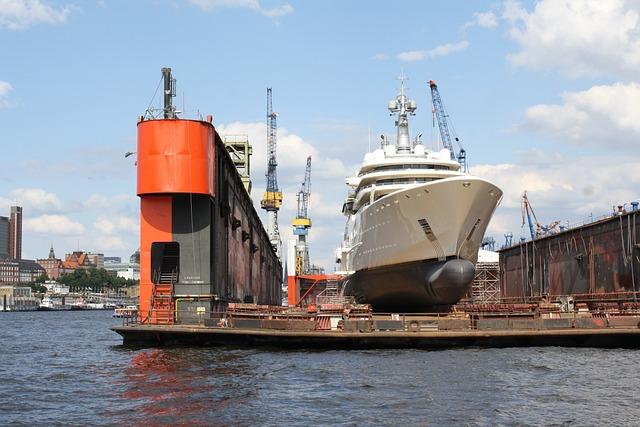
Understanding the Role of Oligarchs in Modern Russias Political Landscape
The influence of oligarchs in Russia’s political sphere remains profound, with manny individuals holding power that rivals or even surpasses that of government officials. These wealthy industrialists often have deep ties to the Kremlin, creating a network that intertwines business interests and state policies. Their ability to finance and support specific agendas allows them to shape the direction of the country while maintaining the fa├¦ade of a centralized authority under President Putin. This dynamic raises crucial questions about the true nature of power in Russia today. Key features of this relationship include:
- Economic Leverage: Oligarchs control critical sectors such as energy, banking, and defense, enabling them to exert ample influence over national policy.
- Political Connections: Many oligarchs have personal relationships with Putin and other top officials, facilitating a mutually beneficial exchange of support and protection.
- Social Impact: The decisions made by oligarchs can considerably impact the Russian populace, from job creation to public welfare, underscoring their role in domestic affairs.
As the war in Ukraine continues, oligarchs like Dmitry Firtash and Roman Abramovich have been scrutinized for their positions and actions.Their alliances and financial support mechanisms often bolster Kremlin narratives, enabling aggressive international posturing. The recent shifts in geopolitical dynamics illustrate how oligarchs not only support the state’s military endeavors but also play a critical role in the dissemination of propaganda aimed at justifying conflict.The following table highlights key oligarchs and their purported influence on Russian foreign policy:
| Oligarch | Industry | Influence on Policy |
|---|---|---|
| Dmitry Medvedev | Energy | Supports military funding through oil revenues |
| Alisher usmanov | Telecommunications | Shapes public opinion via media ownership |
| Roman Abramovich | Investments | Facilitates diplomatic engagement with Western powers |
The Rise of the Oligarch: How Wealth Translates to Power in the Kremlin
The influence of oligarchs in Russia has become a pivotal force shaping the political landscape, especially in the context of the ongoing conflict in Ukraine. With an estimated wealth that allows them unparalleled access to power, these wealthy elites are not merely businessmen; they act as kingmakers whose decisions can pivot the course of national policy.In Kremlin circles,a select group of oligarchs is known to have fortified their positions by sustaining President vladimir Putin’s regime through substantial financial support,thereby intertwining their fates with state interests. These oligarchs wield their fortunes not only to enrich themselves but also to reinforce a nationalist agenda that paints the West as a direct threat to Russian sovereignty.
Among the moast influential figures is a cohort that capitalizes on their economic clout, engaging in practices that blur the lines between business and politics. Key characteristics of this powerful cabal include:
- Personal Loyalty: Oligarchs frequently enough display unwavering loyalty to Putin, positioning themselves as indispensable allies.
- Military-Industrial Connections: Many have strong ties to defense industries, facilitating a flourishing arms trade that supports military initiatives.
- Media Manipulation: Control over media outlets allows oligarchs to shape public perception and justify aggressive policies.
In this intricate web of influence, the oligarchs act as the enablers of PutinŌĆÖs grand vision, where substantial financial resources translate seamlessly into geopolitical power, often at the expense of neighboring nations. Understanding their role sheds light on the motivations behind Russia’s actions on the global stage, revealing a complex interplay of wealth, politics, and military ambition.
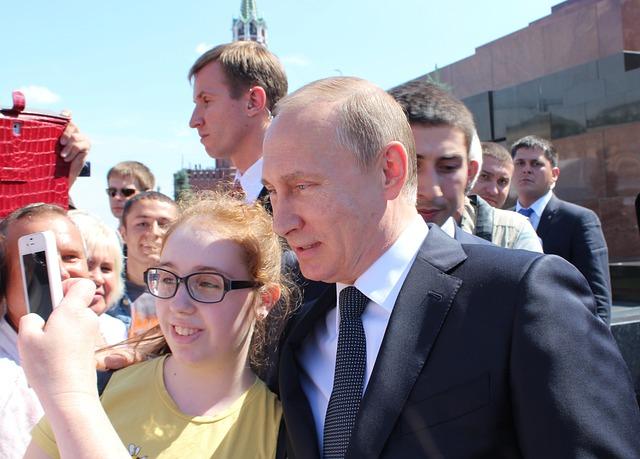
Profile of Influence: Key Characteristics of Putins Oligarchic Allies
The oligarchs surrounding Vladimir Putin are not merely business magnates; they are pivotal players shaping the geopolitical landscape of Russia. Characterized by their substantial wealth, these individuals wield immense power and influence, frequently enough acting as conduits between the Russian state and its economic interests. Predominantly emerging from the tumultuous post-Soviet era, these allies share certain traits that bind them to PutinŌĆÖs regime. They are known for their loyalty to the President, often prioritizing their allegiance over personal or corporate interests, which in turn earns them protection and favors from the Kremlin. Their access to financial resources allows them to fund various state endeavors, thus consolidating their power and amplifying their influence on national policies, including aggressive actions against Ukraine.
Furthermore, these oligarchs often possess strong connections both domestically and internationally, enabling them to maneuver through complex political landscapes. many have backgrounds in industries that directly intertwine with state interests, such as gas, oil, and defense. As highlighted in the following table, the oligarchs exhibit a range of profiles, showcasing their role in supporting Putin’s broader ambitions:
| Oligarch | Industry | Key Asset | Role in policy |
|---|---|---|---|
| Roman Abramovich | Oil & Gas | Chukotka Mining | Funding military initiatives |
| Oleg Deripaska | Aluminium | Rusal | Influencing energy policy |
| Vladimir Potanin | Finance | Interros | Supporting government finances |
this intricate web of interdependence not only reinforces Putin’s grip on power but also fuels the Kremlin’s ambitions, as they navigate both homegrown challenges and external pressures. The loyalty of these oligarchs, driven by a combination of economic interests and political survival, makes them formidable allies in the ongoing conflict with Ukraine, showcasing how personal fortunes align with national aggression.
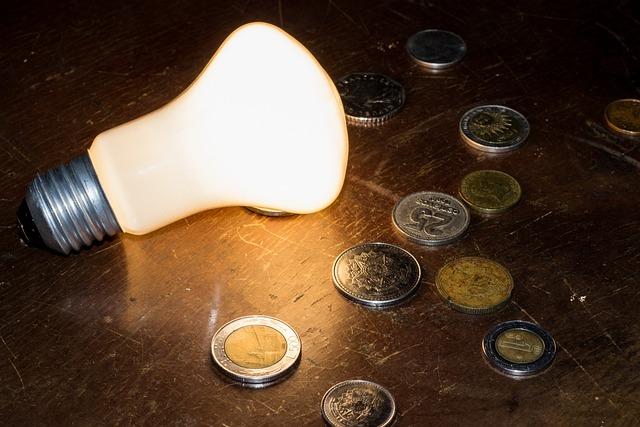
The Economic Stakes: How War in Ukraine Affects Russian business Interests
The ongoing conflict in Ukraine has had profound implications for Russian business interests, particularly for the oligarchs whose fortunes are heavily intertwined with the Kremlin. While some may view this turmoil as a path to increased profits through wartime contracts or resource control,the reality is far more complex. Economic sanctions imposed by Western countries have targeted major sectors of the Russian economy, leading to significant capital flight and a tightening of investment opportunities both domestically and abroad. This has resulted in volatile market conditions, and many oligarchs are left grappling with plummeting stock prices and shrinking revenues. The fallout from such sanctions has made it increasingly difficult for Russian businesses to engage in the global economy, forcing them to either adapt to a new landscape or face economic decline.
Moreover, the pressure to align with the Kremlin’s aggressive stance has created a paradox for oligarchs: they must balance their loyalty to Putin with the need to safeguard their extensive investments. As military actions escalate, the stakes rise, particularly for those whose businesses rely on international partnerships. Reports suggest that some oligarchs are advocating for a more cautious approach,fearing that continued escalation could lead to further alienation from western markets. In this high-stakes habitat, key players face decisions that could redefine their legacies, prompting a critical evaluation of their strategic alliances and long-term viability in the changing landscape of Russian business.

Strategic Recommendations for Western Governments on Dealing with Russian Oligarchs
The current international landscape necessitates a careful reevaluation of how Western governments engage with Russian oligarchs, especially as these powerful figures continue to influence not only the Russian economy but also political dynamics that have global ramifications. To address the emerging threats posed by these oligarchs, Western policymakers should consider implementing measures such as:
- Increased Sanctions: establish targeted sanctions against oligarchs directly linked to military aggression, ensuring that their assets abroad are frozen and transactions are heavily monitored.
- Transparency Initiatives: Promote greater transparency in international financial systems to combat the opaque networks that oligarchs use to hide illicit wealth.
- Collaborative Efforts: Foster coalitions among Western nations to present a united front and share intelligence regarding oligarchsŌĆÖ activities and connections.
- Support for Civil society: Invest in initiatives that empower Russian civil society, providing avenues for genuine opposition to oligarchical power structures.
Furthermore, understanding the intricate relationships between these oligarchs and state power can provide insights into mitigating risks associated with their influence. Analyzing the economic clout wielded by these individuals could guide recommendations that include:
| Oligarch | Industry | Potential Influence |
|---|---|---|
| Roman Abramovich | Energy | Strong ties to state resources |
| Alisher usmanov | Mining | Major financier of government agendas |
| Mikhail Fridman | Telecommunications | Control over media narratives |
This data paints a clearer picture of the oligarchs’ stakes in Russia’s strategic decisions, empowering Western governments to devise more effective policies aimed at undermining their influence while safeguarding democratic values and international stability.

The Future of Ukrainian Sovereignty: Implications of Oligarch-Driven Aggression
The ongoing conflict in Ukraine has revealed a complex web of power dynamics, with oligarchs playing a pivotal role in shaping the narrative and actions of the Russian government. As Ukraine grapples with its sovereignty, it is indeed essential to understand how the ambitions of influential businessmen can directly affect national security. These oligarchs not only wield enormous economic influence but also have the ability to steer political decisions, often prioritizing personal gain over the stability of nations. The risks posed by their actions are compounded by their closeness to the Kremlin, leading to an environment where aggressive tactics are endorsed and perpetuated. This relationship illustrates how economic power can translate into political leverage, ultimately endangering the sovereignty of ukraine and undermining democratic processes within the region.
Key factors contributing to this tumultuous situation include:
- Financial Interests: Oligarchs often profit from war economies, reinforcing their motives to instigate or prolong conflicts.
- Geopolitical Influence: Their connections can facilitate the spread of misinformation and propaganda that serves Russian interests.
- Policy Manipulation: By exerting pressure on political leaders, oligarchs can shape legislation that favors their ambitions at the expense of national integrity.
this oligarch-driven aggression threatens not only Ukraine’s territorial integrity but also disrupts the wider geopolitical balance in Europe. The interplay between oligarchs and state power emphasizes a worrying trend where the fate of a nation is increasingly held hostage to the whims of a select few,illuminating the dire need for robust international intervention and a unified front to safeguard Ukraine’s sovereignty.
Future Outlook
the complex interplay of power within Russia highlights the significant influence of its oligarchs, particularly in the context of the ongoing conflict in Ukraine. As we have explored, the oligarch in question represents not only a formidable financial empire but also a pivotal player in shaping the Kremlin’s aggressive strategies. His ambitions and connections underscore the intricate web of loyalties and rivalries that define Russia’s elite, revealing how personal interests can intertwine with national policies. As the situation continues to evolve, understanding the motivations behind these powerful figures is essential for grasping the broader dynamics at play in the region. As Russia moves forward, the role of such oligarchs will undoubtedly remain a critical factor in the trajectory of its foreign policy and its implications for global stability.



